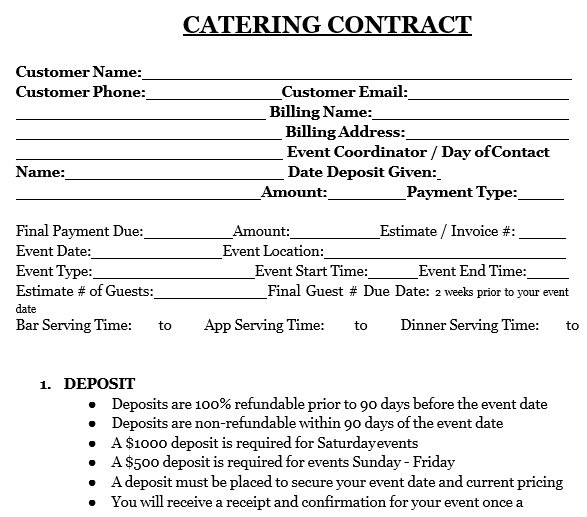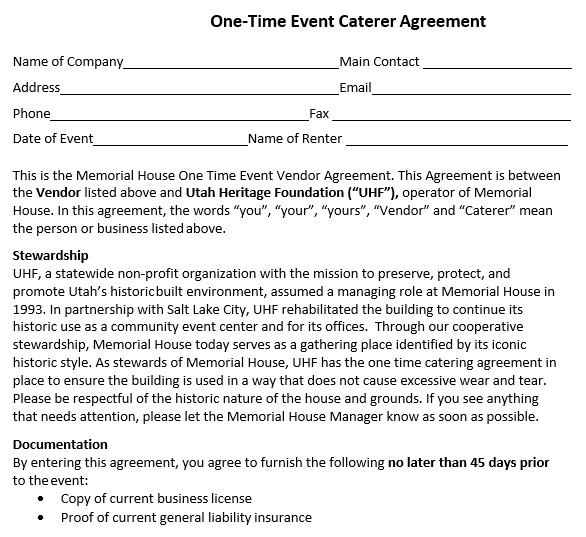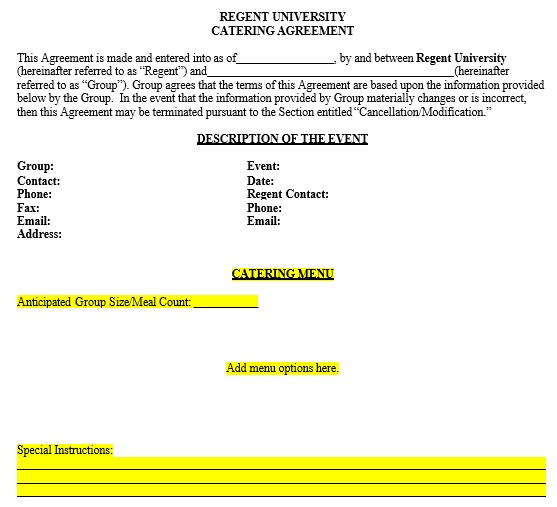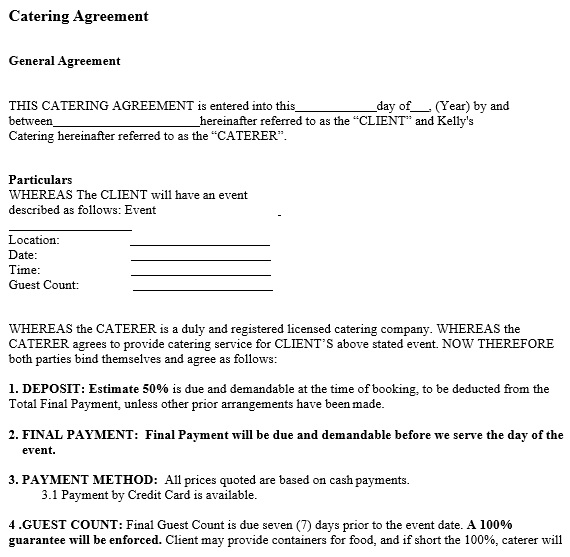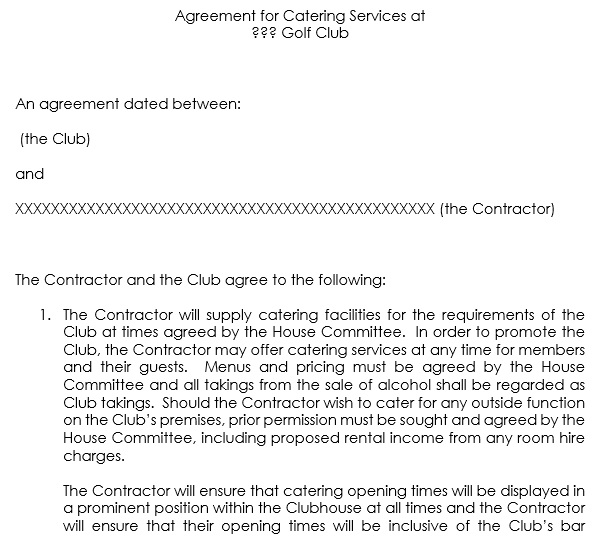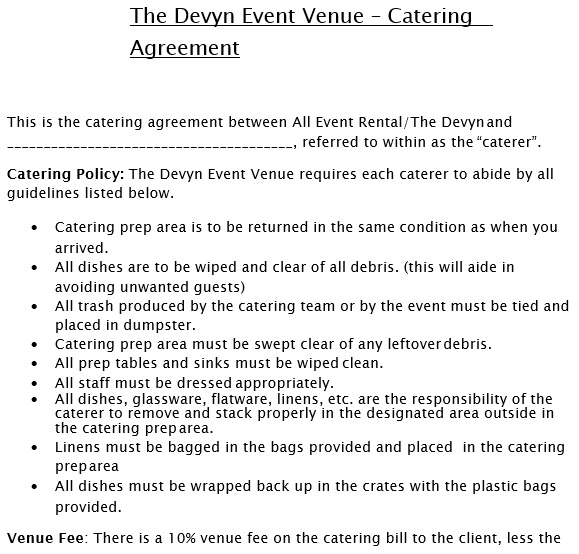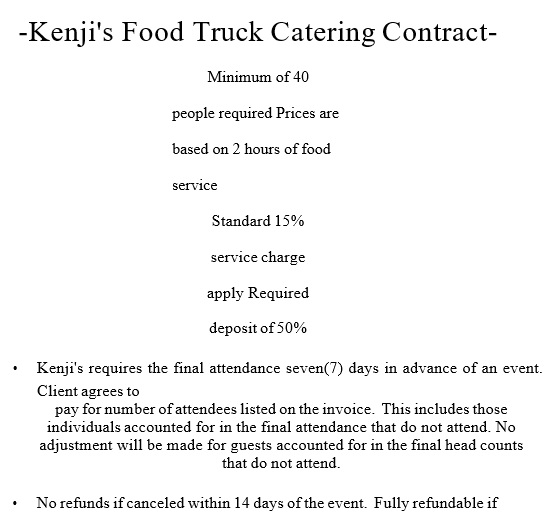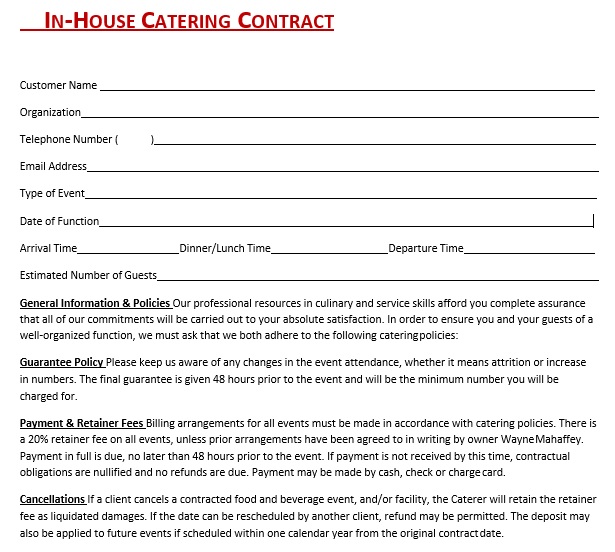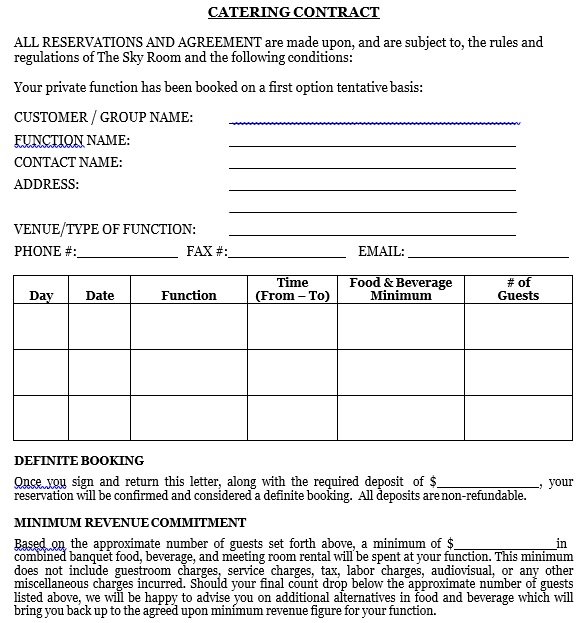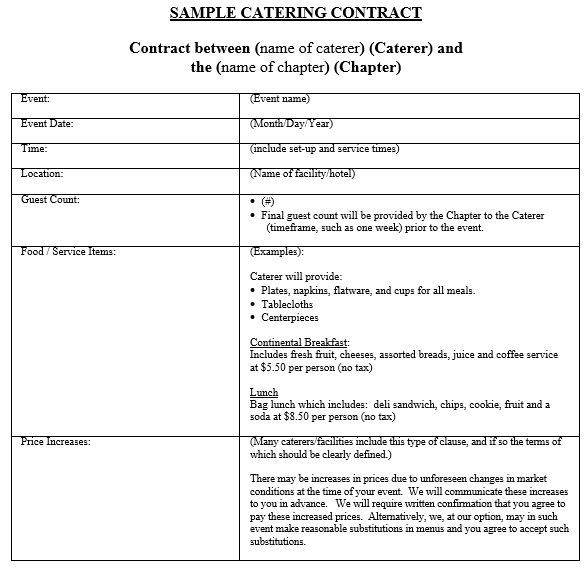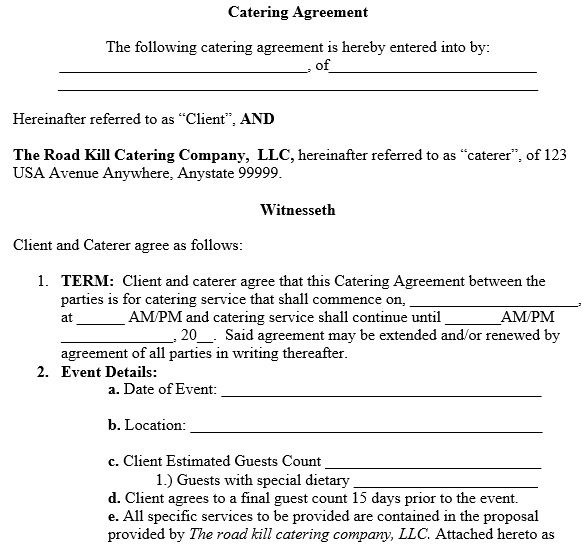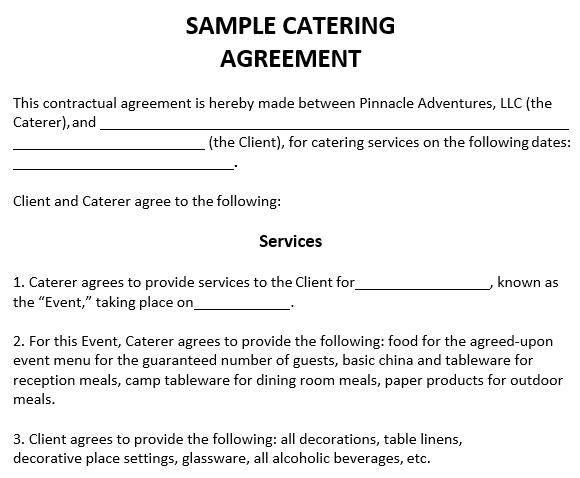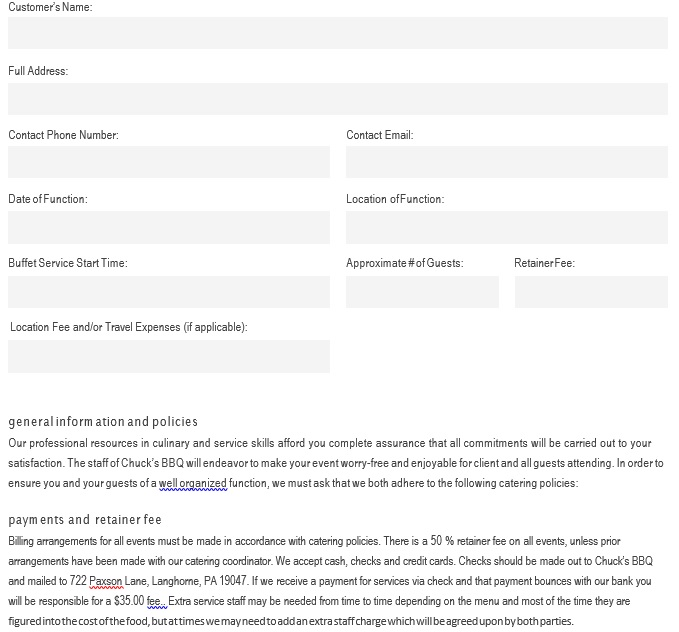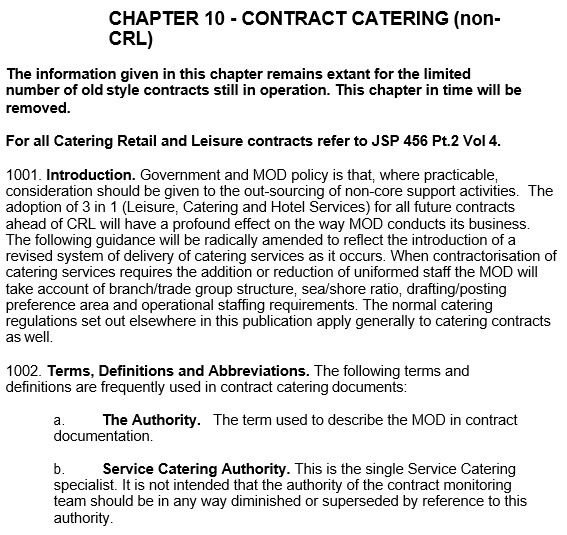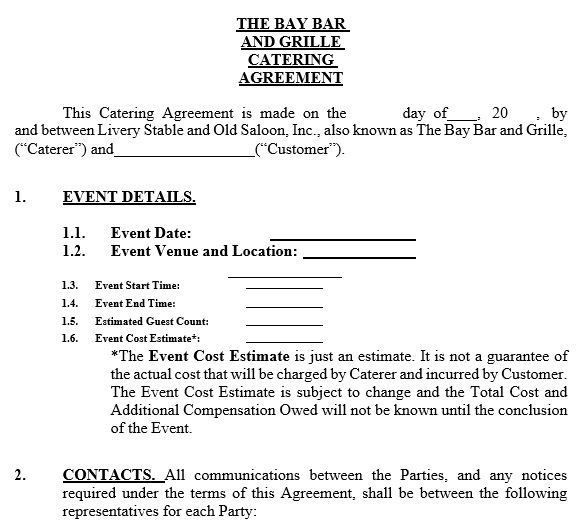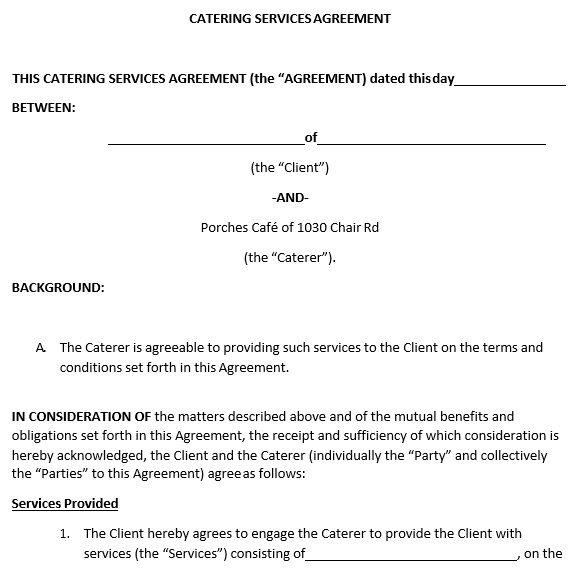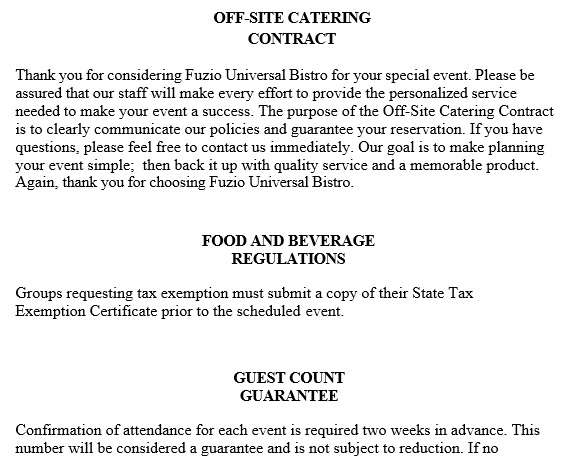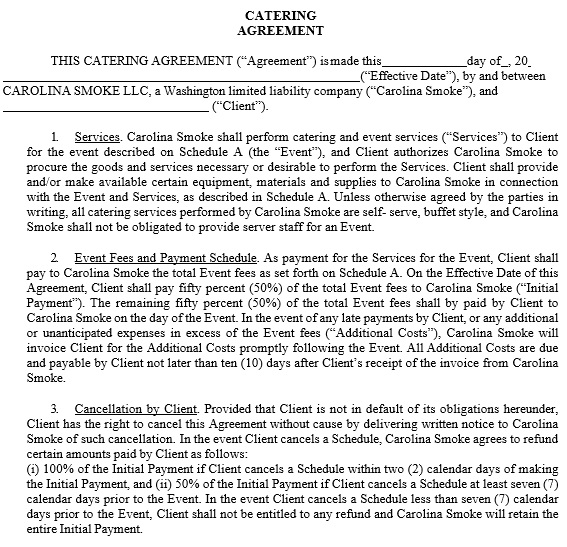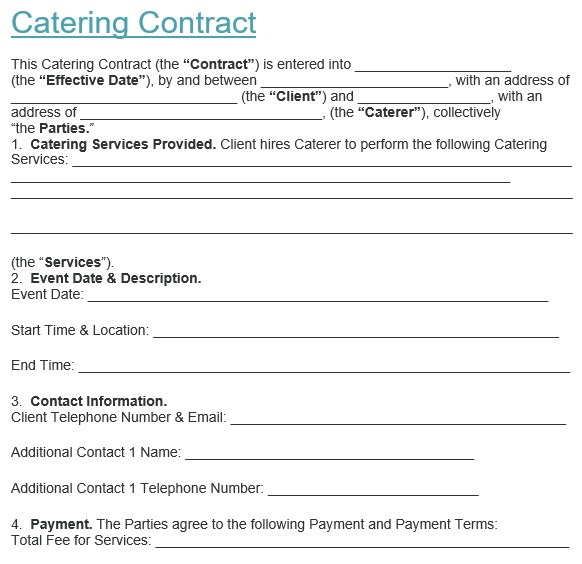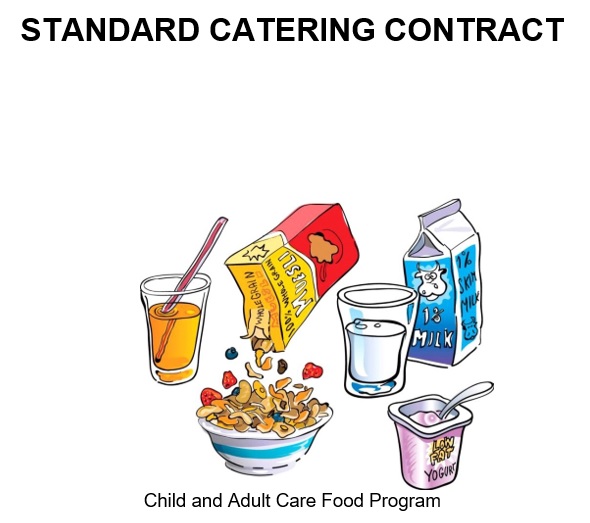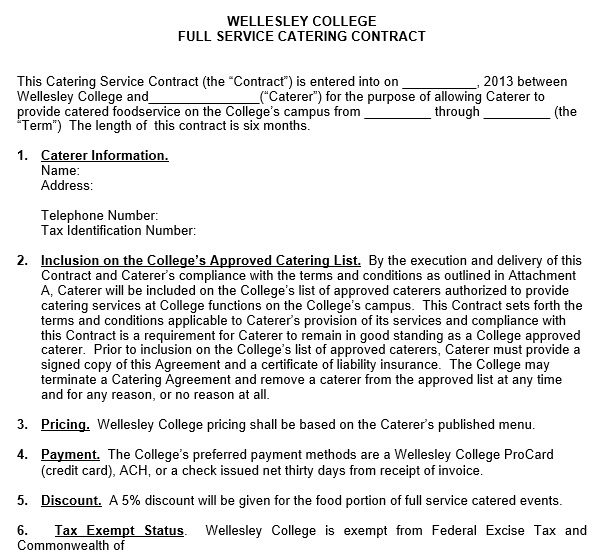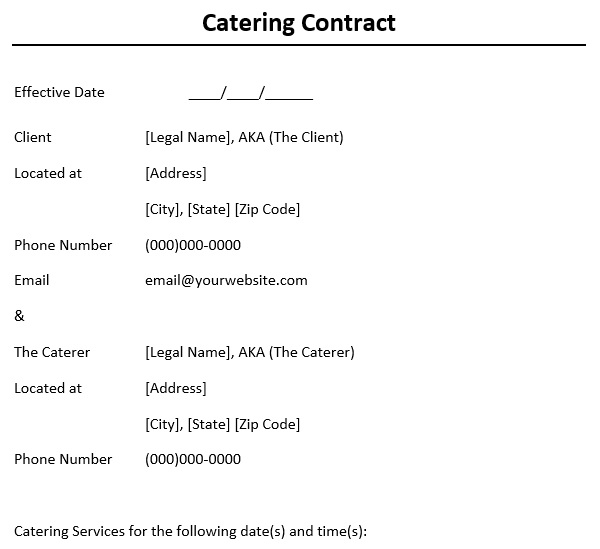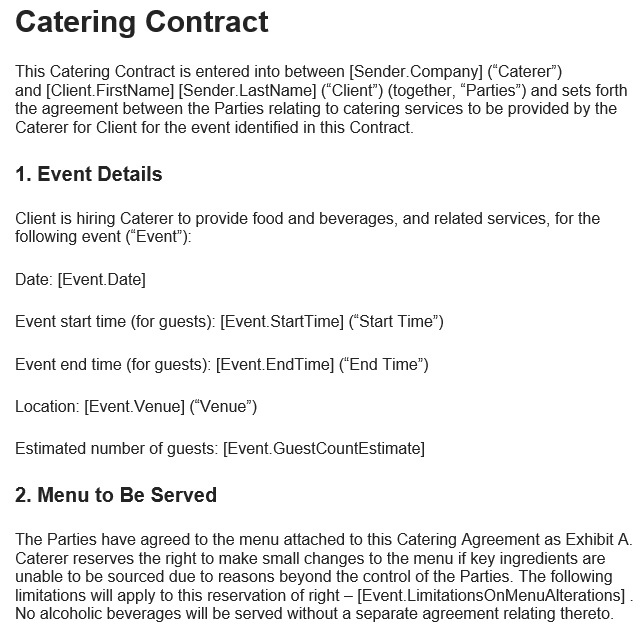A catering contract template is a legal written agreement that list down the service expectations between the caterer and the client. People usually look at it for a discussion of food, beverages, and decors written on paper but it is a lot more than that.
Table of Contents
- 1 What is a catering contract?
- 2 What to include in a catering contract?
- 3 Two different types of catering:
- 4 How to create a catering contract?
- 5 The importance of a catering contract for caterers:
- 6 Explain the terms and conditions:
- 7 What to consider before hiring a caterer?
- 8 Conclusion:
- 9 Faqs (Frequently Asked Questions)
What is a catering contract?
A catering contract is a binding agreement between you as the caterer and your client. This contract outlines the details of a catering service that will happen over a particular period of time for an event. You can use this template when you will provide food for a set of people. However, you can also use this contract in the following situations;
- As a restaurant owner, you can use it to provide your clients clear information about the food products and other services that you will give them for a certain event. If you will provide them other things such as drinks, desserts, or appetizers then also mention them.
- In a school, without cooking facilities if you want to provide students to buy lunch.
- As a wedding planner, you want to organize a wedding rehearsal or reception.
- For a staff, company wants to provide meals for a specific event.
- It is a useful document if an organization plans to host a fundraising event.
What to include in a catering contract?
A catering contract consists of the following details;
- The date of the events
- Catering is for a single event or a series of events
- Details of the service including;
1- Number of guests
2- Serving staff
3- Menus
4- For the guests, dishware and cutlery
5- Cleanup at the venue after the event - Name of the caterer or caterers name and their location
- Compensation details
- How to terminate or cancel the agreement
- The amount of notice that requires to be given in order to cancel
- Protect the intellectual property that is mentioned in any menus, recipes, methods or ingredients
Two different types of catering:
Most people think that catering only applies to dinner parties. While, there is so many social events that require the presence of formal food and beverages. You should consider the following two main types of catering while creating your catering contract;
Corporate catering:
This type of catering service makes the host able to perform other tasks and assures that you will take care of the meals. Throughout the event, this includes serving meals at different times. For example, you can serve savory sandwiches, pastries, and fresh fruits for breakfast.
Moreover, you can serve hot meals with salads, soup, sandwiches, and other courses for lunch. Timely convenience and reasonable prices are the main factors to keep your businesses successfully going. The catering business is not all about making and delivering meals, on the basis of the agreement with your client you can also do other tasks as part of your business. Providing decoration for the event is one important role you can engage in.
If you are the owner of the catering service then include experienced professionals in your staff that will decorate the venue according to the client’s requirements. Also, you should consult with your client in order to know how they want you to serve the guests, arrange your waiters, clean up, and more.
Wedding receptions:
Wedding receptions are the specialty of catering businesses throughout the years. To make its success possible you will require a huge budget. Since weddings occur frequently so you must have a great experience on how to successfully handle a wedding reception. Due to the competition, you must acquire the services of other experts. They will definitely help you out and ensure that your clients will have a memorable wedding experience.
Furthermore, the scrumptious food served and the decorations are the most anticipated part of the event. The success of any event is based on the catering service. You have to serve delicious food and beverages.
How to create a catering contract?
Below are some tips that will help you in creating your own catering contract;
Demonstrate the services you will provide:
Your contract must contain a detailed section that covers menu-related services and items. This part includes;
Here, you have to provide full detail of all of the agreed-upon food that you will provide. Along with main menu, you can also include the appetizers, beverages, or snacks that you will serve beforehand.
Alternates or substitutions:
It is also mandatory to provide any food substitutions. Include alternate dishes that accommodate guests who have dietary restrictions or food allergies such as vegetarians, vegans, etc.
Food service type:
It is also important to clearly specify that whether the service of the food is a buffet or a sit-down meal. In the contract, also indicate that how you will serve the food and beverages.
What to do with leftovers:
Elaborate provisions on how you will handle any leftover food and beverages in your contract.
Staff details:
Staff details may include dress code requirements, the ratio of catering staff to guests, and more.
Other services or items:
The items or equipment you will provide like utensils, table linens, glassware, etc should be clearly indicated in the contract.
Payment schedule and fees:
The agreement should include the method of payment for the food and services that you provided. It is also includes a payment schedule.
The importance of a catering contract for caterers:
Catering and event planning is considered time-sensitive businesses. The contractors and employees are responsible for executing their clients’ vision. A lot of planning and collaboration is required with third parties in order to make the catering project successful.
With the help of a catering contract, you can make sure that caterers get paid for their services timely. This way, they can pay for any expenses relevant to the event. In addition, payments can be missed without a catering contract as well as clients could walk away due to a disappointed overall experience.
Explain the terms and conditions:
Your contract should include the following terms and conditions;
Basic details:
Basic information involves the names and contact details of the parties involved, the venue of the event, the date, and the time.
Final date to make modifications:
The contract should set a final date for any modifications the client or event organizer will make to prevent any conflicts.
Healthy and safety requirements:
It is the responsibility of the caterer to comply with any health and safety regulations. The event organizer must provide proof of any necessary permits or licenses.
Cancellation policy:
This is another important section of the agreement that include the amount that you will refund to the client should they cancel. The amount of the refund is based on the cancellation.
Breach of contract:
There must be a clause in the contract that deals with the eventuality of a breach. Also, include provisions for matters such as who will pay the legal fees if a breach happens.
What to consider before hiring a caterer?
Clients can start thinking about the different ways to save money when they have determined which category their event belongs to. Clients are in control of what they will order when it refers to catering contracts. Here are some tips that you can suggest to your client to save money and time when they get your services for an event;
- The total guest count
- The delivery method of the food
- Their budget
Conclusion:
In conclusion, a catering contract template is an important tool that outlines the responsibilities of your catering service and your client. Your event success is totally based on your catering contract. You can download a catering contract template online or also make your own.
Faqs (Frequently Asked Questions)
Formalizing the relationship between a client and a contractor is the main benefit of a catering contract. Also, it sets up expectations for both parties and in case a dispute arises, it gives them protection.
It is based on the event you are going to organize and the scope of the work. This contract can be signed a year or half a year before the big date itself. Your contract must contain the final date for any possible changes as well as contract termination terms regardless of what timeframe you pursue.

